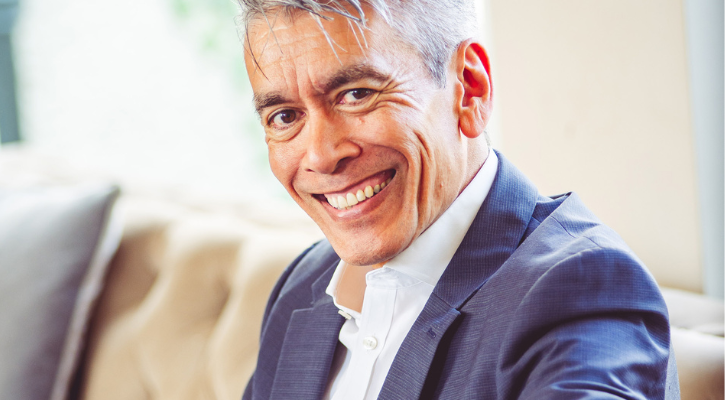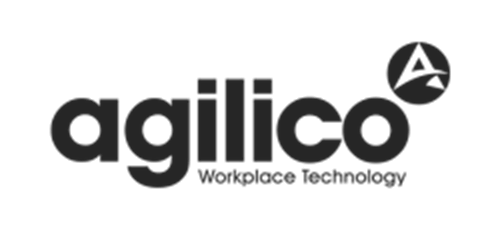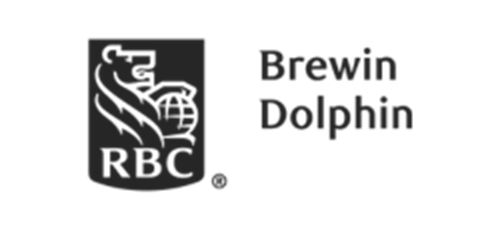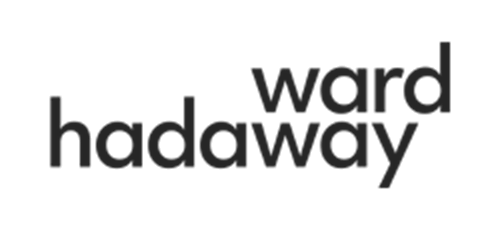As the third employee of easyJet and its very first Sales and Marketing Director, Tony Anderson knows better than most the importance of being both brave and bold when it comes to building a successful business.

At the Entrepreneurs’ Forum’s Spring conference ‘Fortune Favours The Brave’, Tony’s engaging talk shared his experiences: developing one of the most distinctive brands in aviation and helping grow easyJet into a household name.
For all the excitement of the journey and the many highs, there were also lows, but it was the pace at which he and the easyJet team responded to setbacks which ensured they continually forged ahead. This was hugely important in the rise of easyJet in the late 90s, as it grew to become Europe’s second largest airline (by passenger numbers).
Tony remembers well his life-changing job interview with Stelios Haji-Ioannou (the easyJet founder) in 1995. Sir Stelios (in 2006 he received a knighthood for "services to entrepreneurship") had discussed two enemies: British Airways (BA) and travel agents. The instant attraction for Tony was the opportunity to disrupt the aviation industry with progressive, innovative thinking.
Tony previously worked at BA and was well aware of how speedy decisions and disruptive innovation in aviation could challenge BA, which despite its size and resources was often cumbersome when it came to decision-making.
His experience of using the successful low-cost U.S. airline ‘Southwest’ on a secondment with BA in the States had shown him what could be done in the UK … and Europe. Anticipating how this model could translate to other markets was crucial to Tony seeing future potential, particularly the popularity of the direct sales model which cut out the agent ‘middle-man’ and kept customers’ costs down. Frustrated with the inability to explore this innovation, Tony left BA to join Thomas Cook, another major travel brand, where again he honed knowledge of the travel industry. Tony explains how the easyJet concept came to the market at just the right time to successfully shake it up. He says: “Timing is everything. if easyJet had been any earlier, it would have been squashed by BA. If it'd been any later, it would have missed the window of opportunity that opened following the deregulation of European skies.”
Stelios had a vision of how aviation and travel was changing and Tony was fully bought in. He found his time at BA frustrating, believing it to be weighed down by an aversion to commercial risk. He explains: “BA had an established corporate culture that got in the way of doing a lot of innovative things. There was an element of me thinking if I was to join easyJet then I wanted to do it when I was still relatively young. You don't necessarily want to be taking huge risks in your fifties.”
Taking risks and being brave are integral to the easyJet story. Tony explains: “Bravery comes in different forms. A lot of people do incredibly brave jobs, in some cases being responsible for people's lives and I am in awe of them. But yes - I guess in one sense my decision to give up a secure role with an established travel brand like Thomas Cook, to join this start-up was brave - and bold. It was definitely a risk, but a calculated one. There's bold but there's also reckless. I was prepared to make this decision knowing that there was a chance of failure, but determined not to be afraid of failure.”
Bold is exactly what Tony was when he became easyJet’s third employee. With low cost fares now part of daily life it is hard to recall the seismic impact on the industry back then. But on November 10, 1995, aviation was totally shaken up. Flying from Luton to Glasgow for the “cost of a pair of jeans” (£29 return compared with BA’s £120 one-way), sparked a revolution.
But Tony recalls his conviction didn’t quite match that of the easyJet founder. He explains: “I remember sitting in Glasgow Airport the day of the first flight with Stelios, reading the Scottish papers full of stories about this plucky new airline that had launched, but was destined to go bankrupt and remember thinking ‘How am I going to pay the mortgage…?’”
Tony relied on his creative imagination to help build the distinctive brand that Sir Stelios envisioned from the start, quickly establishing himself as the founder’s right-hand man. He was instrumental in developing the ‘David versus Goliath’ struggle that set easyJet apart, exploiting its underdog position with guerilla marketing stunts.
Tony explains that the early years of his marketing role were about taking creative risks which helped build awareness. Some extremely creative and often low-budget PR stunts helped raise the easyJet profile. One involved Sir Stelios and colleagues dressed in orange boiler suits on the BA low-cost brand Go’s inaugural flight. With the police called, the PR column inches were guaranteed. Once the brand began to gain recognition it went through an evolution, with emphasis shifting to building a more emotional relationship with customers. The company quickly grew, taking on more destinations - growing bases beyond Luton Airport, its initial home - and expanding into key European destinations. But growth was not without challenges.
Tony explains: “A couple of months in, things got very tricky with BA dumping capacity on the market and slashing prices. Stelios said ‘I want you to spend a million pounds on advertising’. I said, ‘I don’t know what we're gonna spend it on’. Eventually we produced a TV advert in a couple of weeks. It was absolutely awful in creative terms: it just said 29 pounds to Scotland with a phone number on a jet. But we put it out and it worked. I guess people forgave us the poor quality because the message was so strong.”
Stelios’ ultimate ambition was to establish a family of brands under the over-arching ‘easy’ prefix. Among the brands launched under the ‘easy’ umbrella, were easyCar, easyHotel and easyCruise, to name a few, all united by the distinctive typography and colouring and with varying degrees of success. As some failed to become established, resilience proved to be crucial, ensuring the team were not deterred from innovating new ideas. EasyInternetCafe was among the ventures that didn't work out financially. Tony recalls: “If our internet cafe business had started a year earlier, there's a good chance it would have established itself. In terms of the concept, we probably would have floated it and made a lot of money. But with the emergence of broadband it just couldn't get going.
“Equally with easyValue - one of the first ever price comparison sites - it was really innovative, but we were too early. The price comparison market just wasn't there.” Bold decision-making and dealing with adversity continued to prove vitally important to the success of the company. Tony explains one particularly memorable incident: “In early 1998, there were bomb threats at Luton Airport, causing the main terminal to be evacuated. So we decided to set up a temporary departure terminal in our offices.
“We departed about 5,000 passengers through our offices. We mocked up destination signs, and checked-in people's bags. This all took place pre 9/11 when security was more lax. We didn't have a plan that said, if the terminal is closed, we need to do the following…. Someone had the idea and we said ‘is there a good enough reason that we can't do this?’”
Capitalising on their ability to respond quickly, the company frequently stayed ahead of the pack.
Tony says: “The internet is a classic example because over a space of about five years, all the airlines moved their business model towards the internet. But it took many of them longer than us, so we were first to the opportunity. If you've got much more at stake, like BA for instance, then you have to be pretty convinced before you start upsetting your major distribution channel.” Tony’s experience with easyJet falls into three main phases, he explains. “The first phase was up to 2001, with easyJet floating in 2000. Following the downturn of the internet cafe I became involved with an internet bank, Egg, as retail marketing director.
“I did a succession of what my wife would call ‘proper’ jobs. And then I went back to working for Stelios in 2010 for a while. And then my most recent phase started in 2017. If we put all that together, I have probably worked with him for about 12, 13 years out of the last 25 or so.”
Today, Tony is no longer directly involved with easyJet though remains an adviser to easyGroup and Sir Stelios. The latter is no longer hands-on either, but remains the largest individual shareholder.
Would the business’ success have happened without access to the fortune Sir Stelios’s father had built from a successful shipping business?
Tony explains that the money, although helpful in terms of accelerating growth, wasn't necessarily the main reason for success; with mindset, determination, bravery and a little luck all playing their part. He explains: “It started with five million pounds Stelios got from his father. But that doesn't even buy you a sixth of an aeroplane. “Everything we had, we needed to lease, starting with two planes. “I get asked how can a small or medium business identify with this huge success story that is easyJet, turning over billions? My answer is easyJet was a small company once.”
Innovation has been vital to advancements in aviation with further enhancements and greater efficiency in the customer’s experience exciting Tony about its future. He argues that Artificial Intelligence has the potential to play its part in improving the customer-facing side of air travel: “I think AI could be tested and trialled and implemented in the customer experience side quite quickly. If it can result in savings, efficiencies and an enhanced passenger journey, then the applications will come.”
There is no doubt the early days of easyJet were hugely demanding, working most days of the week for long hours - but the collaborative and fun culture created a very powerful and inclusive bond, ensuring everyone felt part of the team, as it quickly grew. That said, Tony believes passion for work needs to be balanced. He adds: “You have to get that balance right. Exactly where that balance lies differs from individual to individual... Anyway, my wife helps me keep my feet on the ground.”
Tony Anderson - perhaps the success of this master of the airways can in part be attributed to his ability to keep his feet firmly on the ground…
Click here to read the latest edition of forum.







